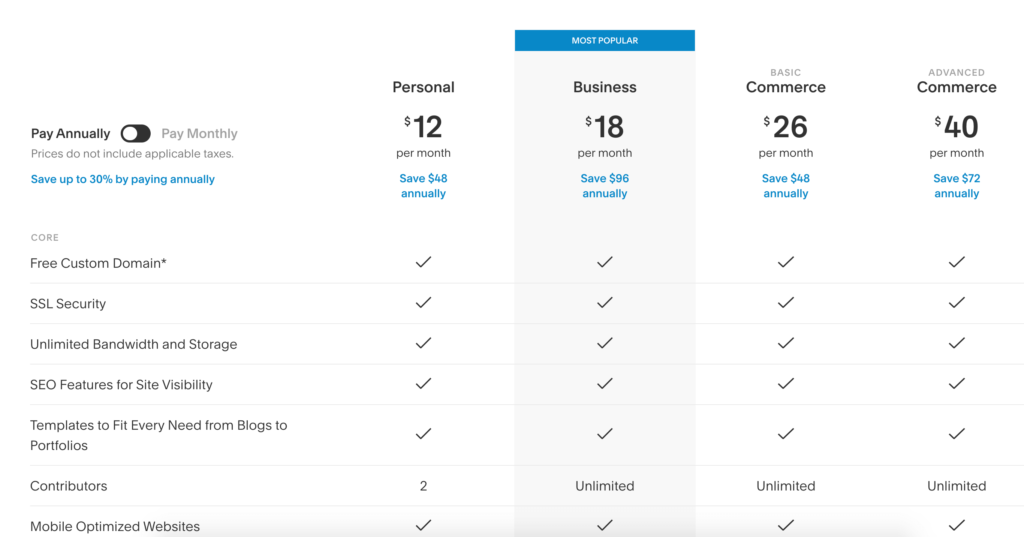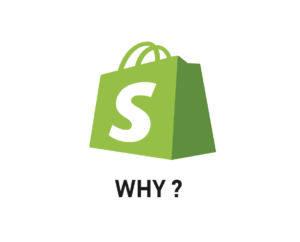Choosing the right website builder is crucial for establishing a successful online presence. Squarespace and GoDaddy are two popular options, each offering unique features and benefits. In this blog post, we’ll compare Squarespace and GoDaddy to help you decide which platform is best suited for your needs.
Ease of Use
Known for its sleek and modern interface, Squarespace provides an intuitive drag-and-drop editor. Its design-focused templates are easy to customize, making it an excellent choice for users with minimal technical skills. The learning curve is relatively gentle, allowing you to create a professional-looking site quickly. GoDaddy also offers a user-friendly interface with a simple drag-and-drop editor. It is designed for beginners and provides a straightforward setup process. However, some users find GoDaddy’s interface less visually appealing and slightly more dated compared to Squarespace.
Design and Templates
Squarespace excels in design quality, offering a wide range of visually stunning, responsive templates. These templates are perfect for creative professionals, photographers, and artists who want to showcase their work. The customization options are robust, allowing you to tweak the design to match your brand’s identity. GoDaddy, on the other hand, offers a variety of templates, but they are generally more basic and less customizable than Squarespace’s offerings. While GoDaddy’s templates are responsive and functional, they may not provide the same level of visual appeal and design flexibility.
Features and Functionality
Squarespace is feature-rich, providing tools for blogging, e-commerce, SEO, and analytics. It integrates seamlessly with social media and offers built-in marketing tools. Squarespace’s e-commerce capabilities are strong, with options for managing products, inventory, and payments, making it a solid choice for online stores. On the other hand, GoDaddy provides a range of features, including blogging, SEO tools, and email marketing. Its e-commerce functionality is decent but not as comprehensive as Squarespace. GoDaddy’s strength lies in its domain registration and hosting services, providing an all-in-one solution for users looking to manage everything under one roof.
Pricing
Squarespace

Squarespace’s pricing is straightforward, with four plans ranging from Personal to Advanced Commerce. Prices start at $12 per month (billed annually) for the Personal plan and go up to $40 per month for the Advanced Commerce plan. While it’s slightly more expensive, the features and design quality justify the cost for many users.
GoDaddy

In the case of GoDaddy, there are a variety of pricing plans, including Basic, Standard, Premium, and E-commerce, starting at $9.99 per month. GoDaddy often runs promotions and discounts, making it a more budget-friendly option. However, some advanced features may require additional costs.
Customer Support
Squarespace provides 24/7 customer support through live chat and email. The support team is known for being responsive and helpful. Additionally, Squarespace offers a comprehensive knowledge base with guides, tutorials, and community forums. GoDaddy also offers 24/7 customer support via phone and live chat. While the support is generally reliable, some users have reported longer wait times. GoDaddy’s extensive help center includes articles, tutorials, and a community forum for additional assistance.
Conclusion
In conclusion, Squarespace and GoDaddy each offer distinct advantages tailored to different needs: Squarespace excels in design quality and customization, making it ideal for creatives and businesses seeking a visually striking and feature-rich platform, while GoDaddy provides a more budget-friendly, all-in-one solution with reliable domain registration, hosting, and straightforward website building, perfect for beginners and those looking for simplicity. The choice between Squarespace and GoDaddy ultimately depends on your specific needs and preferences. Consider your budget, design requirements, and desired features to make an informed decision. Both platforms offer free trials, so take advantage of these to explore and determine which builder aligns best with your vision for your website.




